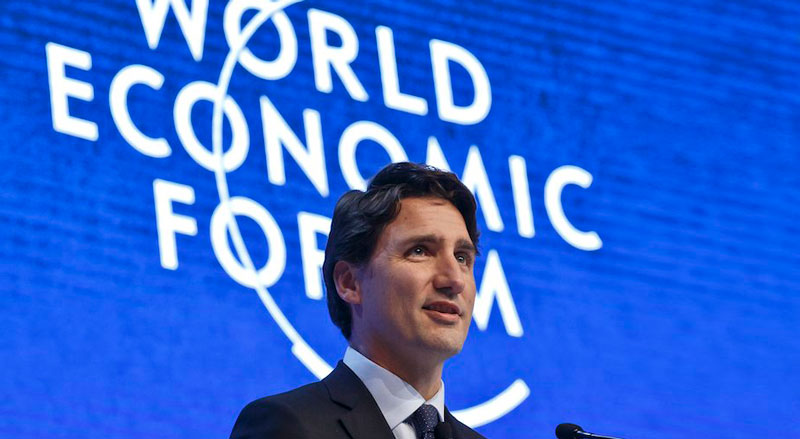Governments around the world are slowly beginning to wake up to the fact that radical green agenda policies are having devastating economic consequences.
In America, it’s been clear for some time that Democrat President Joe Biden’s green policies have exacerbated inflation.
Biden’s agenda has hit Americans hard, making it increasingly difficult for families to fill their grocery baskets and gas tanks.
In Canada, major institutions are now starting to warn that far-left Prime Minister Justin Trudeau’s climate policies are hurting the economy and the Canadian people.
The Canadian central bank, the Bank of Canada, is now warning that Trudeau’s World Economic Forum-dictated green agenda policies are now worsening inflation.
Buried in its January 26 report entitled “The 2021-22 Surge in Inflation,” the Bank of Canada admits that the “ongoing transition from fossil fuels to green energy … requires an immense reallocation of investments, which raises costs due to higher demand for new investments and lack of investment supply into fossil fuel production.”
“These cost pressures are exacerbated by the long time required to build green energy infrastructure, further boosting prices for fossil fuels,” the report continues.
“This shift to relatively higher energy prices will also contribute to challenges for monetary policy to keep inflation on target over the long term.”
The bank highlights the push by Western nations to transition away from stable and ethical North American oil to purported alternatives frequently reliant on instable foreign supplies of rare minerals.
According to the bank’s report, this transition is “perhaps the most persistent trend” adding to inflationary pressures in Canada.
The report references a March 2022 speech by Greek economist Isabel Schnabel, a member of the executive board of the European Central Bank.
Schnabel underscores that “there is a price to be paid for going green at a pace that reflects the dual objective of safeguarding both our planet and our right to self-determination.”
Schnabel argues that it’s a price worth other people paying.
She further suggests that the “fight against climate change is one factor that is contributing to making fossil fuels more expensive.”
Oil and its byproducts do not just fuel transportation and keep the economy moving but are used in plastics, protective equipment, chemicals, fertilizers, drugs, clothing, and even in the construction of the materials needed for the means of their planned substitution, such as solar panels and wind turbines.
Schnabel suggests that in this transition, countries like Canada will also have to contend with “greenflation.”
“Many companies are adapting their production processes in an effort to reduce carbon emissions,” she said.
“But most green technologies require significant amounts of metals and minerals, such as copper, lithium, and cobalt, especially during the transition period.”
Much of the world’s cobalt comes from Chinese-owned mines in African nations.
Many of these mines rely on slavery and child labor.
Here is a cobalt mine in the Congo where the mineral is extracted to help achieve the World Economic Forum’s green agenda vision that is being promoted by climate alarmists like Trudeau and Biden:
Congo supplies 70% of the world’s cobalt via industrial mining (mostly Chinese-owned). Cobalt is used in lithium-ion rechargeable batteries used in smartphones, tablets & electric cars. Children in Congo are among those risking their lives to mine cobalt.pic.twitter.com/lL6E0ZAAhs
— James Melville (@JamesMelville) January 27, 2023
“Electric vehicles, for example, use over six times more minerals than their conventional counterparts,” Schnabel adds.
“An offshore wind plant requires over seven times the amount of copper compared with a gas-fired plant.”
The heightened demand for these minerals and the constrained supply accounts for the spike in prices, contributing to the problem of the so-called green solution.
Mark Mills of the Manhattan Institute wrote in apparent concurrence in the Wall Street Journal last April, stating, “Just as inflated prices for oil and natural gas rip through the economy, so do the costs of basic minerals, which are needed to build every class of product from appliances and houses to computers and cars.
“And while materials have for most of recent history constituted a minor share of the final cost of products, that share becomes major if mineral prices balloon.”
Schnabel of the European Central Bank distilled the trouble in the climate alarmists’ remedies down to: “The faster and more urgent the shift to a greener economy becomes, the more expensive it may get in the short run.”
READ MORE: Green Agenda Alarmists Demand Big Tech Bans ‘Climate Disinformation’



